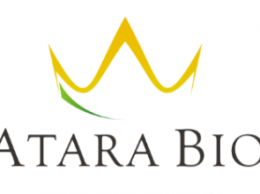Ceres inks deal to sell plant genetics software
IN THIS ARTICLE
- Agribusiness Topic
- Stephen Nellis Author
By Stephen Nellis Tuesday, July 8th, 2014
Shares of Thousand Oaks-based energy crop firm Ceres were up 8 percent in midday trading on news that the company inked a deal to monetize its genome viewing software through a deal with Bayer CropScience.
Ceres’ core business is in developing non-edible crops such as sorghum for use in biofuels. The company has been tweaking the genetics of those plants in hopes of growing them in places or times of the year that are ill-suited for traditional seeds. It is currently testing sorghum in Brazil that would help ethanol producers there plug gaps in the country’s 200-day-a-year sugar cane season.
Ceres developed its software, Persephone, for in-house use developing its crops. The software allows researchers to zoom in and out of massive amounts of genetic data and then overlay other information on the data. Ceres said the capabilities are similar to modern mapping programs that allow users to overlay weather and traffic data.
Ceres said that Bayer is the second multinational company to license the software and that it plans to pursue more customers. It also plans to launch a Web-hosted version for researchers who want to examine genetic data held in public databases.
Ceres has been searching for new revenue streams as it tries to boost its stock price. In April the company received a warning from Nasdaq officials that its stock would be removed from the exchange if Ceres didn’t boost its stock price above $1 within six months.
The delisting warning came about a month after the company raised $23 million in fresh capital to further its sorghum tests in Brazil this year. Its previous round of tests produced promising results, but the evidence wasn’t conclusive enough to sway farmers to plant its crops, analysts said. The results from this year’s harvest are due later this month.
Meanwhile, Ceres has looked toward licensing revenue to bring cash in the door as it continues its research. In May, the company said it had received patent protection for a corn-derived gene for use in developing corn hybrids. Ceres said it plans to license that patent out to other companies and that it plans to monetize its portfolio of 85 patents.
Ceres is hoping its software will be compelling to customers because it speeds up the process of working with plant gene data. While computing speed is no longer a hurdle for most business and consumer software, plant genomes are larger than the human genome and can often contain several terabytes of data.
“The explosion of low-cost full genome DNA sequencing, from plant science to biomedical research, is creating incredibly large data sets that are rich sources of information if mined effectively,” Richard Hamilton, CEO of Ceres, said in a statement.
Software engineers at Ceres developed a number of proprietary data compression methods and other optimizations that help scientists examine plant gene data at useable speeds, the company said. “The speed itself changes the way researchers can use their data. It encourages more exploratory research and better utilization of genetic data,” Tim Swaller, vice president of genomic technologies for the firm, said in a statement.
Ceres shares reached 82 cents in midday trading on July 8.











